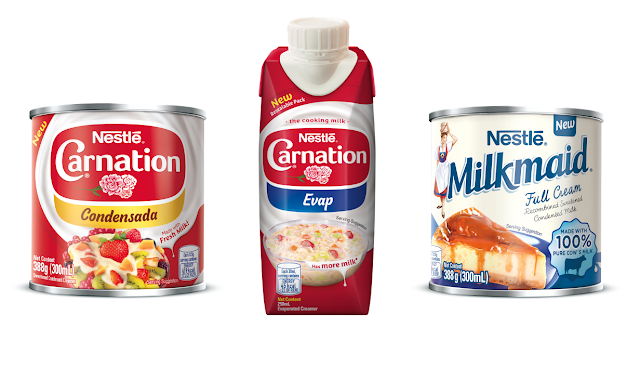Environmental awareness is the first step towards living sustainably. For us to make effective lifestyle changes and better choices for the planet, we must know more about the problem and understand what steps we can take as individuals and a nation to be part of the solution.
So, how do we do this? We can begin by doing our own research. The internet has enough resources to walk us through the current climate situation and how we can lessen our impact to the environment. We can also learn more about sustainable organizations and companies to support and how we can be part of their cause.
Nestlé Philippines, as a Kasambuhay for the Environment, places great importance on solid waste management education. Throughout the month of September, it held a series of webinars that discussed how consumers can practice a more sustainable lifestyle and become environmental Kasambuhays themselves.
“We believe in the power of education to inspire
and encourage people to take the necessary steps to live more sustainably. Knowing
how leads us to take action,” said of Nestlé Philippines Chairman and CEO Kais
Marzouki.
Facilitated by Ms. Anna Oposa, Executive Director and Chief Mermaid of Save Philippine Seas SPS), the webinars featured simple and easy ways for parents, young professionals, and students to practice low waste living and responsible solid waste management in their homes and communities.
 |
| Attendees learned 3 ways different ways to do more together from home: low-waste ways to cut down on consumption, proper waste segregation and composting! |
Here are just some of the topics that were
covered:
Be a waste watcher
Before we’re able to reduce the waste that we
consume (plastics, especially), we must first assess the amount of waste we
produce and what mostly make up the contents of our trashcans. Ms. Oposa
recommended using templates such as SPS’ Waste Watch Report Card to keep track
of what products and items we usually use and dispose and assess what we can lessen
or replace moving forward. You can download a copy of this on Nestlé’s website.
Practice low-waste habits
Throughout the sessions, the attendees were able
to learn tips and tricks to reduce their plastic waste consumption. These are
as simple as buying in bulk when doing the groceries to cut the amount of
plastic packaging, opting to purchase products that are more sustainable and
eco-friendly, and using reusable alternatives to plastics, among others.
Segregate your waste
Segregation plays a big part in diverting
plastic waste away from the environment because this creates higher value for
plastics and gives them a higher chance for recovery and recycling. There are
three main categories of waste: recyclables, biodegradable, and residuals. For
recyclables and residuals with potential for recycling, it’s important to make
sure that the items are clean and dry before dropping off to collection points
to make the recycling process much easier.
When it comes to their journey towards a more sustainable lifestyle, Ms. Oposa advised the attendees to aim for progress, not perfection. “When we aim for perfection, there’s a tendency for us to get overwhelmed and when we get overwhelmed, parang nagkaka-analysis paralysis tayo and we don’t know how to act from there. But if we aim for progress, we can focus on one or two things first, do it well and consistently, and before you know it, it’s part of your lifestyle already. You just keep doing it and then you'll see other people doing it as well. We are all multiplying our environmental practices,” she said.
 |
| Different groups from parents, professionals and the youth attended the webinars to learn more about how we can do more together for the planet. |
As the largest food and beverage company in the country, Nestlé Philippines recognizes its responsibility to take a leading role in tackling the plastic waste crisis. The company’s ambition is for all Nestlé packaging to be 100% recyclable by 2025 and to reduce its virgin plastic use by 1/3 by 2025. It is also committed to collect and process the equivalent amounts of plastics used in its packaging so that these do not end up in the environment. This year, Nestlé Philippines is celebrating its first full year of plastic neutrality, having collected and diverted from oceans and landfills over 27,000,000 kilos of plastic from August 2020 to July 2021 which is equivalent to the amount of plastics it put out into the market.
There is much more to be done to protect the planet
from waste, especially plastic waste. Just like Nestlé Philippines, consumers
can also be plastic neutral in their own ways. Nestlé has provided education
resources as well as information on collection points. To download solid waste
management modules, you can visit Nestle’s website. After segregating your waste at home, collect and drop off your
plastics at any of these plastic collection points across the country to have them processed or recycled. You can also help in building
Nestlé’s list of these collection points by visiting rplr.co/PlasticDropPH. We can #DoMoreTogether and be a #KasambuhayForTheEnvironment.
####












